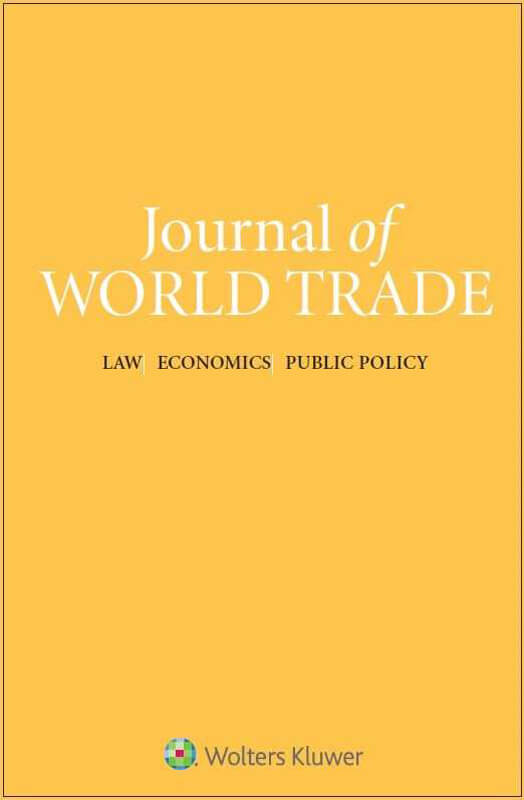Home > All journals > Journal of World Trade > 55(5) >

$25.00 - Rental (PDF) *
$49.00 - Article (PDF) *
George Arie Comnenus
Journal of World Trade
Volume 55, Issue 5 (2021) pp. 805 – 828
https://doi.org/10.54648/trad2021034
Abstract
Via the Vienna Convention on the Law of Treaties, this article proposes a definition of the “special circumstances” that sanction authorities to self-initiate trade remedy proceedings per article 5.6 of the WTO Anti-dumping Agreement. In effect, it optimizes the world economy by enabling authorities to self-detect unfair trading practices – without a complaint of the domestic industry. This inability likely restrains trade remedies’ potential as a finer, more fruitful alternative for the indiscriminate imposition of bulk-tariffs – visible in the Sino-American trade war. Arguably, the “special circumstances” occur when the pace of country-specific import significantly exceeds the pace of the worldwide import, through significant price undercutting which stems from transnational price discrimination rather than a cost-efficient industry. To ascertain whether an absence of price discrimination is due to a particular market situation, the general theory introduces a new criterion. This criterion provides the first definition of “sales in the ordinary course of trade”, wholly derived from Article 2.2 of the WTO Anti-dumping Agreement.
Keywords
trade remedies, initiation, dumping, special circumstances, particular market situation, price undercutting, ordinary course of trade
Extract
